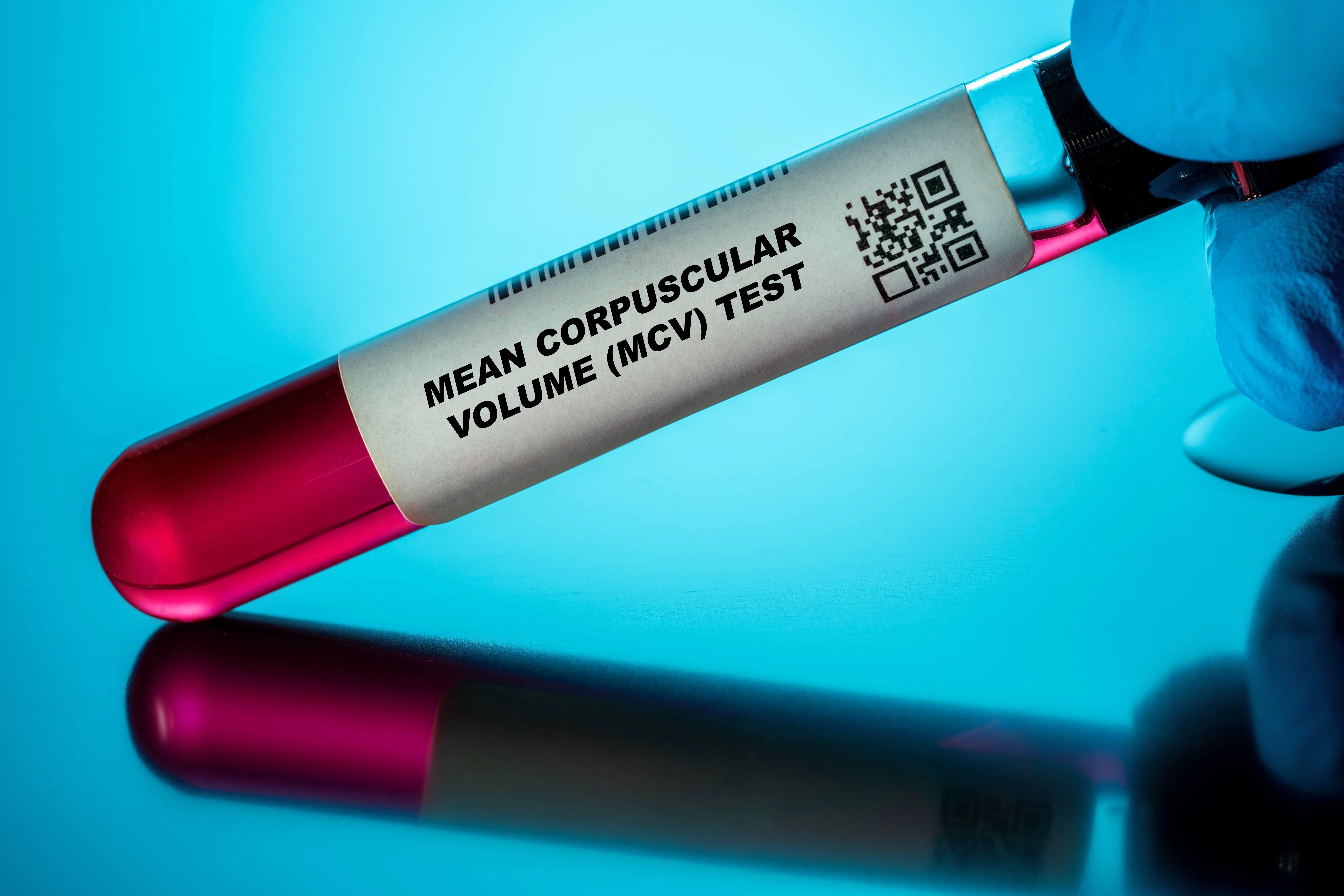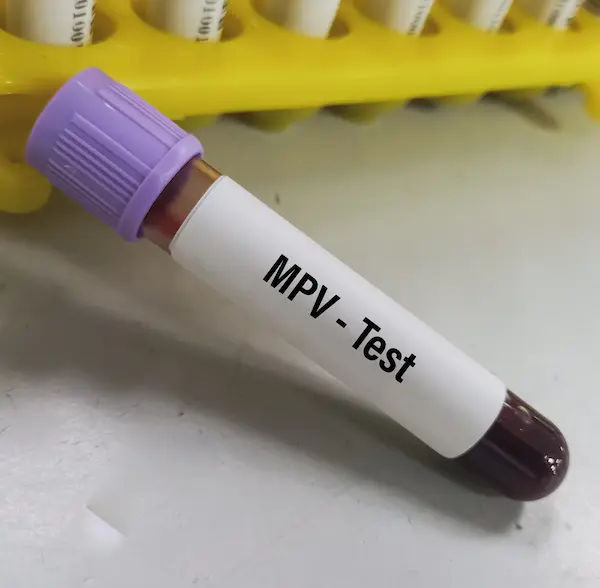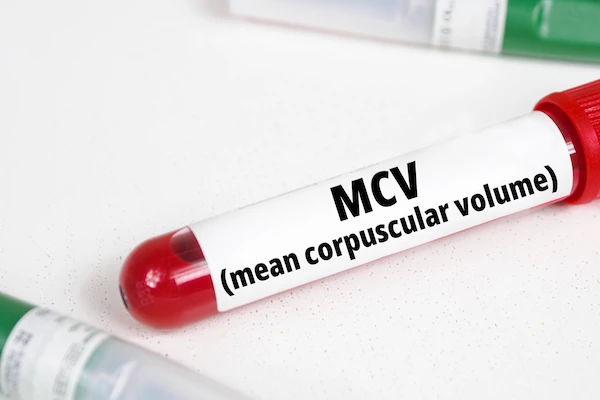Understanding MCV Blood Test and Results
Learn about the MCV (Mean Corpuscular Volume) blood test, its purpose, procedure, and how results help in diagnosing different types of anemia and blood disorders.

Written by Dr. Mohammed Kamran
Reviewed by Dr. Shaik Abdul Kalam MD (Physician)
Last updated on 2nd Sep, 2025

When you visit your doctor for a routine check-up or to investigate symptoms like fatigue, weakness, or dizziness, they may recommend a Complete Blood Count (CBC) test. One important part of this test is the Mean Corpuscular Volume (MCV), which measures the average size of your red blood cells.
If you’ve recently had an MCV test and are unsure what the results mean, don’t worry—this article will help you understand everything in simple terms.
What is an MCV Blood Test?
The Mean Corpuscular Volume (MCV) test is a part of the CBC that checks the size of your red blood cells (RBCs). Red blood cells carry oxygen from your lungs to the rest of your body. The MCV value helps doctors determine if your RBCs are normal, too large, or too small, which can indicate different types of anemia or other health conditions.
Consult a Top Specialist
Why is the MCV Test Done?
Your doctor may order an MCV test if you have symptoms such as:
• Fatigue or weakness
• Pale skin
• Shortness of breath
• Dizziness
• Cold hands and feet
It can also help diagnose:
• Different types of anemia (iron deficiency, vitamin B12 deficiency, etc.)
• Chronic diseases (liver disease, kidney disease)
• Genetic conditions (thalassemia, sickle cell anemia)
Understanding Your MCV Results
MCV results are measured in femtoliters (fL). The normal range is typically:
• 80–100 fL (normal-sized RBCs)
• Below 80 fL (small RBCs – microcytic anemia)
• Above 100 fL (large RBCs – macrocytic anemia)
What Do Abnormal MCV Levels Mean?
1. Low MCV (Microcytic Anemia – RBCs too small)
Possible causes:
• Iron deficiency anemia (most common) – due to poor diet, blood loss, or pregnancy.
• Thalassemia (a genetic blood disorder).
• Chronic diseases (such as kidney disease or infections).
What can you do?
• Eat iron-rich foods (spinach, lentils, red meat, fortified cereals).
• Take iron supplements if prescribed by your doctor.
• Get tested for underlying conditions if symptoms persist.
2. High MCV (Macrocytic Anemia – RBCs too large)
Possible causes:
• Vitamin B12 deficiency (common in vegetarians or due to poor absorption).
• Folate (Vitamin B9) deficiency (due to poor diet or alcoholism).
• Liver disease or hypothyroidism.
What can you do?
• Increase intake of B12 (fish, eggs, dairy) and folate (leafy greens, beans, citrus fruits).
• If deficiency is severe, your doctor may recommend supplements or injections.
• Avoid excessive alcohol consumption.
3. Normal MCV (But Still Have Symptoms?)
If your MCV is normal but you still feel tired or weak, you may have:
• Normocytic anemia (due to chronic illness, blood loss, or bone marrow problems).
• Other underlying conditions (infections, hormonal imbalances).
In such cases, further tests may be needed.
Get Your Health Assessed
How to Improve Your MCV Levels Naturally
Below are the ways to improve your MCV levels naturally,
Dietary Changes
For low MCV (Iron deficiency):
• Eat iron-rich foods: red meat, beans, spinach, tofu.
• Pair iron foods with vitamin C (oranges, tomatoes) to boost absorption.
• For high MCV (B12/Folate deficiency):
• Include eggs, dairy, fish, and fortified cereals (for B12).
• Eat leafy greens, lentils, and avocados (for folate).
Lifestyle Adjustments
• Avoid excessive alcohol (can interfere with vitamin absorption).
• Manage chronic conditions (diabetes, kidney disease) with your doctor’s help.
• Stay hydrated and maintain a balanced diet.
When to See a Doctor
If your MCV levels are abnormal and you experience:
• Severe fatigue
• Shortness of breath
• Rapid heartbeat
• Unexplained weight loss
Consult a doctor immediately for further evaluation.
Next Steps: Book a Test or Consultation
If you haven’t had an MCV test but are experiencing symptoms of anemia, or if your results were abnormal and you need further guidance, consider:
• Booking a CBC test through Apollo 24|7 for a quick check-up.
• Consulting a hematologist if your results are abnormal.
Early diagnosis and treatment can help manage anemia and improve your overall health.
Final Thoughts
An abnormal MCV level doesn’t always mean a serious problem, but it’s important to follow up with your doctor. Simple dietary changes and supplements can often correct deficiencies. Stay informed, eat well, and take care of your health! If you have any concerns about your blood test results, don’t hesitate to reach out to a healthcare professional.
Consult a Top Specialist





